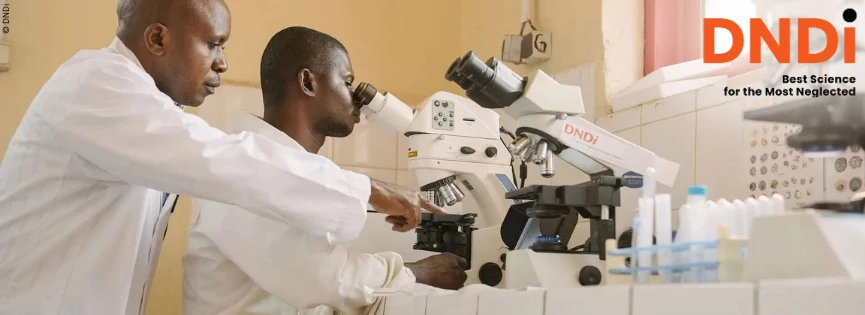Main content
Drugs for Neglected Diseases initiative 2023 Princess of Asturias Award for International Cooperation

Speech by Luis Pizarro, Executive Director of the Drugs for Neglected Diseases initiative
Your Majesties,
Your Royal Highnesses,
Distinguished Members of the Jury,
Most Excellent Laureates,
Most Illustrious Authorities,
Ladies and Gentlemen,
damas y caballeros...
To be honest, in an ideal world, I shouldn’t be here with you today. And, of course, in an ideal world, no patient would be ignored and DNDi would not have any reason to exist.
However, there are millions. Millions of sick, neglected, forgotten, invisible people affected by often fatal diseases for which there are no drugs to cure them. They are too poor for their illnesses to be of interest on this side of the world.
Like Amasi, an 18-year-old Sudanese girl, infected with mycetoma, a tissue-destroying disease that many children in her village contract by walking barefoot on infected thorns. Amputation is usually the only solution. Amasi was in a wheelchair, she did not respond well to care and today... we have no more news about her.
I could also tell you about Bimal, an Indian worker who lives with HIV and a disease called leishmaniasis. In Spain, we know it as a disease suffered by dogs, but in many countries, it affects people. Bimal can no longer work due to his illness, which has plunged his family into misery and forced his 14-year-old son to leave school to find a job to feed his parents and siblings.
These are just two examples among many others of diseases that day after day kill, disfigure and impoverish not only those affected, but also their communities and loved ones.
According to the WHO, neglected diseases affect one in five people on our planet. One point six billion people suffer from one of these diseases every year!
Many of them appear in new regions, especially as a result of climate change and population movements. In Spain, for example, there are now patients with Chagas disease or increasingly significant cases of dengue.
Chagas disease will soon be one of the main reasons for heart transplants in Spain. Existing treatments are not adequate and only 1% of those infected receive any treatment.
However, this unacceptable situation is not inevitable. Today we have the option of no longer ignoring these patients.
It’s true! Look at the COVID-19 pandemic! It has shown us the feats that science can achieve with a little political resolve: vaccines were invented in less than a year for a disease that did not even exist some years ago!
If our patients are deprived of the advances of medical research, it is because they were born in the wrong place.
They are ignored by traditional pharmaceutical research because they are too poor to constitute a lucrative market, and they are neglected by policy makers because they have no voice to be heard, because poverty marginalizes them to the fringe of society.
But I am not here to give you a lesson in morality. On the contrary, I come with a message of hope.
Working closely with partners around the world and particularly in affected countries, our organization has managed to develop 12 new treatments for neglected patients.
It is no exaggeration to say: all working together we have saved millions of lives!
Together, we are demonstrating that a nonprofit research and development model –one based on patient needs– is possible.
That is why I would like to wholeheartedly thank the Princess of Asturias Foundation for this Award, which represents a huge sounding board for us to tell you about this problem.
We are comforted to know that global health issues are critically important for the Jury and Their Majesties, who have already distinguished institutions such as the WHO with this Award. Thank you, from the bottom of my heart.
Let me conclude with the story of Brinol, a 12-year-old Congolese boy. Last April, Brinol was diagnosed with sleeping sickness.
This is a terrible disease which, if not treated, inevitably ends in death. Twenty years ago, when DNDi came into being, the available treatment involved injections of an arsenic- based drug that were so toxic they killed one in 20 patients.
Working together with all our partners, at DNDi we developed a simple, safe and effective pill. Brinol took it for 10 days at home. Today, Brinol is healthy, happy, cured of his illness and dreaming of becoming a mechanic like his father.
Above and beyond the case of Brinol, thanks to the introduction of this simple treatment, we can now consider the possibility of definitively eliminating sleeping sickness throughout the planet.
I have come to Oviedo, to this beautiful land of Asturias, to tell you that today, in 2023, thanks to the advances of science, the work of our teams and partners, thanks to the attention you draw to us with this Award, all together we can bring an end to neglected diseases.
Thank you all.
End of main content
